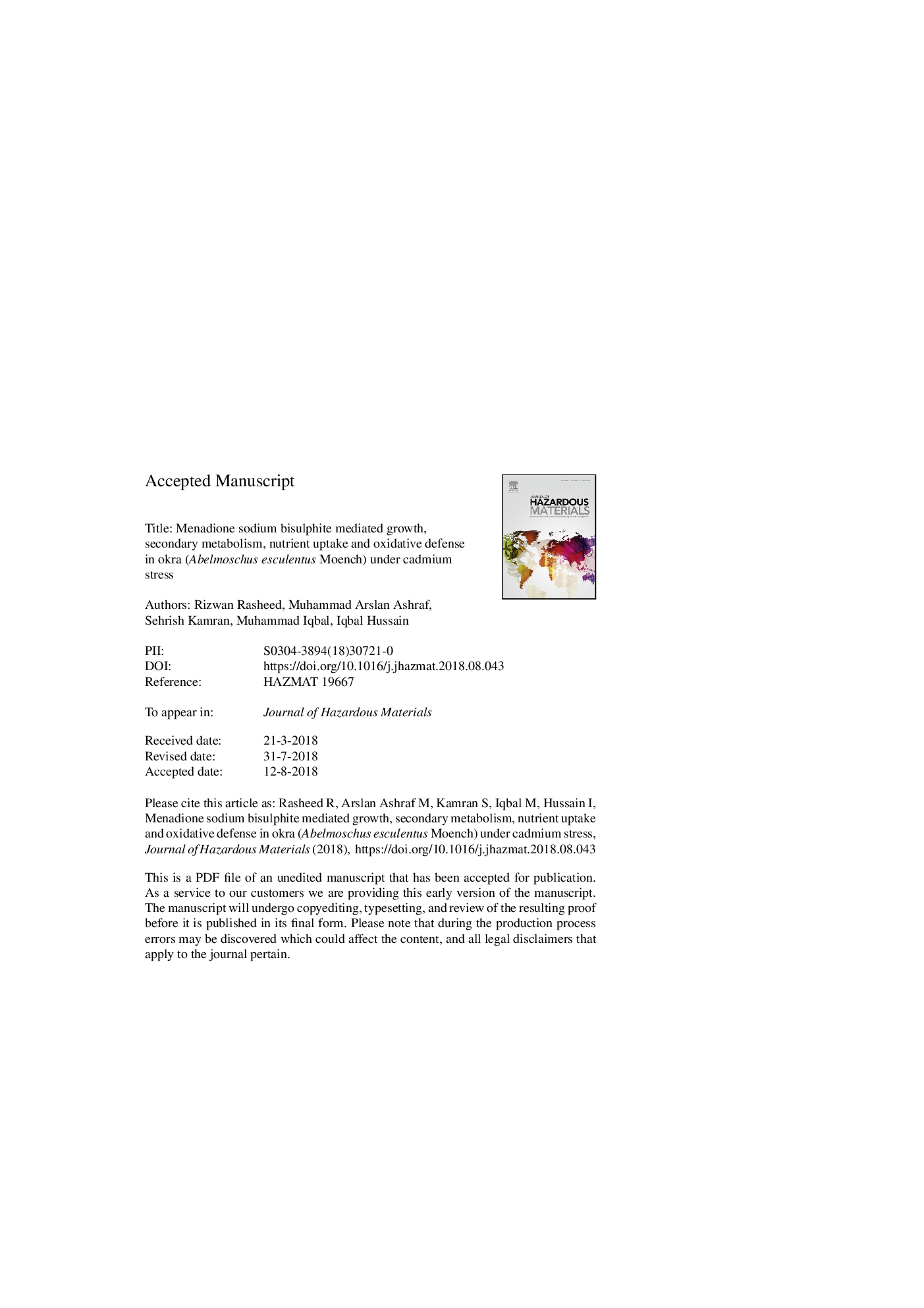| Article ID | Journal | Published Year | Pages | File Type |
|---|---|---|---|---|
| 11003029 | Journal of Hazardous Materials | 2018 | 33 Pages |
Abstract
Menadione sodium bisulphite (MSB) mediates plant defense responses under abiotic stresses. In present experiment, Cd stress (1âmM) resulted in significant reduction in growth, relative water contents, chlorophyll and uptake of essential nutrients in two okra cultivars (Shabnum and Arka Anamika). Cd-induced reduction in these variables was more in cv. Arka Anamika compared with cv. Shabnum 786. Cd caused oxidative damage in the form of higher cellular levels of MDA and H2O2. MSB applications (0, 50, 100, 150 and 200âμM) had differential effect on growth and key physio-biochemical attributes. Higher MSB dose (200âμM) was lethal as it further aggravated damages under Cd toxicity. However, plants treated with 100âμM MSB exhibited lesser oxidative damage due to better oxidative defense in the form of stimulated activities of antioxidant enzymes (SOD, POD, CAT and APX) and increased concentration of non-enzymatic antioxidants (phenolics, flavonoids and ascorbic acid). Moreover, 100âμM MSB mitigated Cd effect on the uptake of Ca, K, and Mg. MSB also reduced the uptake and transport of Cd to aerial parts of plants. The results of present study revealed MSB-induced slight oxidative burst that induced the accumulation of reactive oxygen species (ROS) scavenging defense proteins under Cd stress.
Keywords
Related Topics
Physical Sciences and Engineering
Chemical Engineering
Chemical Health and Safety
Authors
Rizwan Rasheed, Muhammad Arslan Ashraf, Sehrish Kamran, Muhammad Iqbal, Iqbal Hussain,
